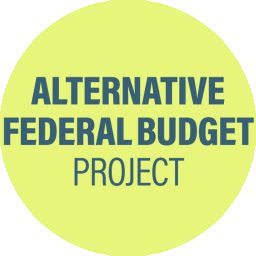Introduction
Indigenous, Black, and racialized communities have always been among the most marginalized in Canada. Structural racism, deeply rooted in Canada’s settler–colonial origins and the enslavement of African peoples, produced laws and policies to restrict the social, economic, and cultural rights of these groups, and continues to exclude them from full participation in Canadian society. Despite the enactment of the Canadian Charter of Rights and Freedoms in 1982, systemic racism persists in Canadian society.
Overview
In January 2018, the Government of Canada officially recognized the United Nations Decade for People of African Descent (2015-24) and committed to specific actions to address recommendations by the UN’s Working Group of Experts on People of African Descent in its 2017 report on its mission to Canada with respect to anti-Black racism.1
The decade is drawing to a close and Canada has yet to address the recommendations intended to combat all forms of racism, racial discrimination, xenophobia, Afrophobia, and related intolerance in the country’s institutions, policies, laws, and programs. It’s a missed opportunity as a nation, and it can be interpreted as a lack of belonging for people of African descent.
Systemic racism and racial discrimination continue to impact all life outcomes for Indigenous, Black, and racialized people in Canada.
They are disproportionately experienced by people at the intersection of multiple identities, including race, gender and gender identity, sexual orientation, ability, faith, income, and citizenship status. Poverty rates continue to be disproportionately higher. Housing inequality is still present. Over-surveillance and over-incarceration in policing, corrections, child welfare, and immigration detention persist. There is a significant lack of access to justice. Health outcomes are worse. Labour market outcomes are poorer in terms of hiring, promotion, and retention. There are persistent wage gaps along with over-representation in low-wage and precarious work.
In addition, these same communities are facing hate incidents and crimes across the country, including anti-Indigenous, anti-Black, anti- Asian, and Islamophobic racism.
Governments in Canada have long refused to collect consistent race- based disaggregated data. This lack of data, particularly comparable data, makes it almost impossible to measure the true impact of systemic racism on all life outcomes for racialized people.
All levels of government must act to address the compounded impact of racism and other forms of discrimination on those with intersecting identities, for example Indigenous, Black and other racialized women, immigrants, those identifying as 2SLGBTQ+, and people with disabilities. These groups have persistently poorer outcomes than their counterparts in accessing health care, employment opportunities, and basic services and entitlements.
While the previous budget made certain investments, Canada still lacks the policies and legislation to address and dismantle systemic racism.
In March 2023, the Treasury Board of Canada Secretariat found that the Canadian Human Rights Commission discriminated against its own Black and racialized employees. Black employees at the commission said they faced systemic anti-Black racism, sexism, and systemic discrimination, and that they were excluded from career and training opportunities and shut out of formal and informal networks.
The federal government has a long way to go as an employer to address systemic racism and discrimination across all its operations and activities (see chapter on public services).
The Canadian Human Rights Commission also decides which cases proceed to the Canadian Human Rights Tribunal. The commission’s own data shows that it had dismissed race-based claims at a higher rate2 than any other human rights complaints.
Canada’s Anti-Racism Strategy expired in 2022. Systemic racism and racism have not been eliminated in Canada, and there is no new commitment to continue the work of dismantling racism. A legislative foundation for the Anti-Racism Secretariat is necessary to give the government’s anti-racism commitment weight, authority, transparency, and ongoing dedicated resources.
Actions
The AFB will amend the definition of harassment and violence in Part II of the Canada Labour Code to include racism as a form of workplace violence and harassment.
The AFB will create legislation to address online and other forms of hate to counter the growing number of hate incidents in Canada.
The AFB will create an Anti-Racism Act that will name and address all forms of systemic racism and hate. This will give a legislative foundation to an independent Anti-Racism Secretariat that reports directly to parliament and has its own budget.
The AFB will create a National Action Plan with metrics to accompany the national Anti-Racism Strategy. The plan will have concrete strategies with actionable goals, measurable targets, timetables, and resource- allocations for each strategy. It will be used to fund community-based efforts across Canada to address all forms of racism and hate.
The AFB will include an intentional racial equity framework in the Gender-based Analysis Plus budget, federal poverty reduction efforts, the National Housing Strategy, and the Canada-wide Early Learning and Child Care Plan.
The AFB will mandate a racial equity framework for all reviews, including reviews of COVID-19 relief spending, funding programs by federal government departments, and specific action plans on eliminating racial disparities and inequalities in Indigenous, Black, and racialized communities in the targeted areas.
The AFB will maximize the budgeted commitment to the collection of disaggregated data by mandating its collection on the basis of race and other socio-demographic identities in the following key areas: the labour market, economic inequality and poverty; the criminal justice system and access to justice; child welfare; environmental racism; health and mental health; housing; social and cultural benefits; education; refugee protection, interdiction, and immigration (including recruitment of migrant workers); citizenship legislation and policy; and media, social media, and mass communications.
The AFB will mandate intersectional data collection and include a clause on racial equity with disaggregated data collection in health funding transfers to provinces and territories. Disaggregated and intersectional data will also be collected across all relevant Sustainable Development Goals.
The AFB will collect data and report on the percentage and dollar values of federal funding to racialized-led and -focused organizations and federal contracts to racialized-owned businesses.
The AFB will collect data and report on the diversity of senior management and boards within the federal government and in federally regulated organizations.
The AFB will strengthen the Federal Employment Equity Act and attach employment equity measures (via community benefits agreements) to all federal investment and recovery programs to ensure racialized and other under-represented groups have equitable access to new jobs created.
The AFB will eliminate the use of the term “visible minorities” from the Federal Employment Equity Act.
The AFB will fully fund settlements for the Black Class Action ($2.5 billion) and the Indigenous Class Action ($25 million) in the federal public service.
The AFB will strengthen the implementation of the Employment Equity Act across all positions to address the under-representation of Indigenous, Black, and other racialized federal employees—particularly in executive and management positions.
The AFB will address all forms of oppression within the federal public service in consultation and collaboration with Indigenous, Black, and racialized employees. It will make anti-oppression, anti-racism, and anti- discrimination training mandatory for all public service employees and managers.
The AFB will take action on and report on the progress of the recommendations made by the United Nations Working Group of Experts on People of African Descent mission to Canada.
The AFB will build on lessons learned from the Black Entrepreneurship Program (introduced in the 2021 budget) and dismantle systemic barriers to entrepreneurship (e.g., access to capital, financing, business networks, technical assistance, and coaching) and make ongoing investments in Indigenous, Black, and racialized entrepreneurs. This will include developing Treasury Board Policy on equity in low dollar value contracts and setting equity targets for organizations receiving funding or contracts from the federal government.







